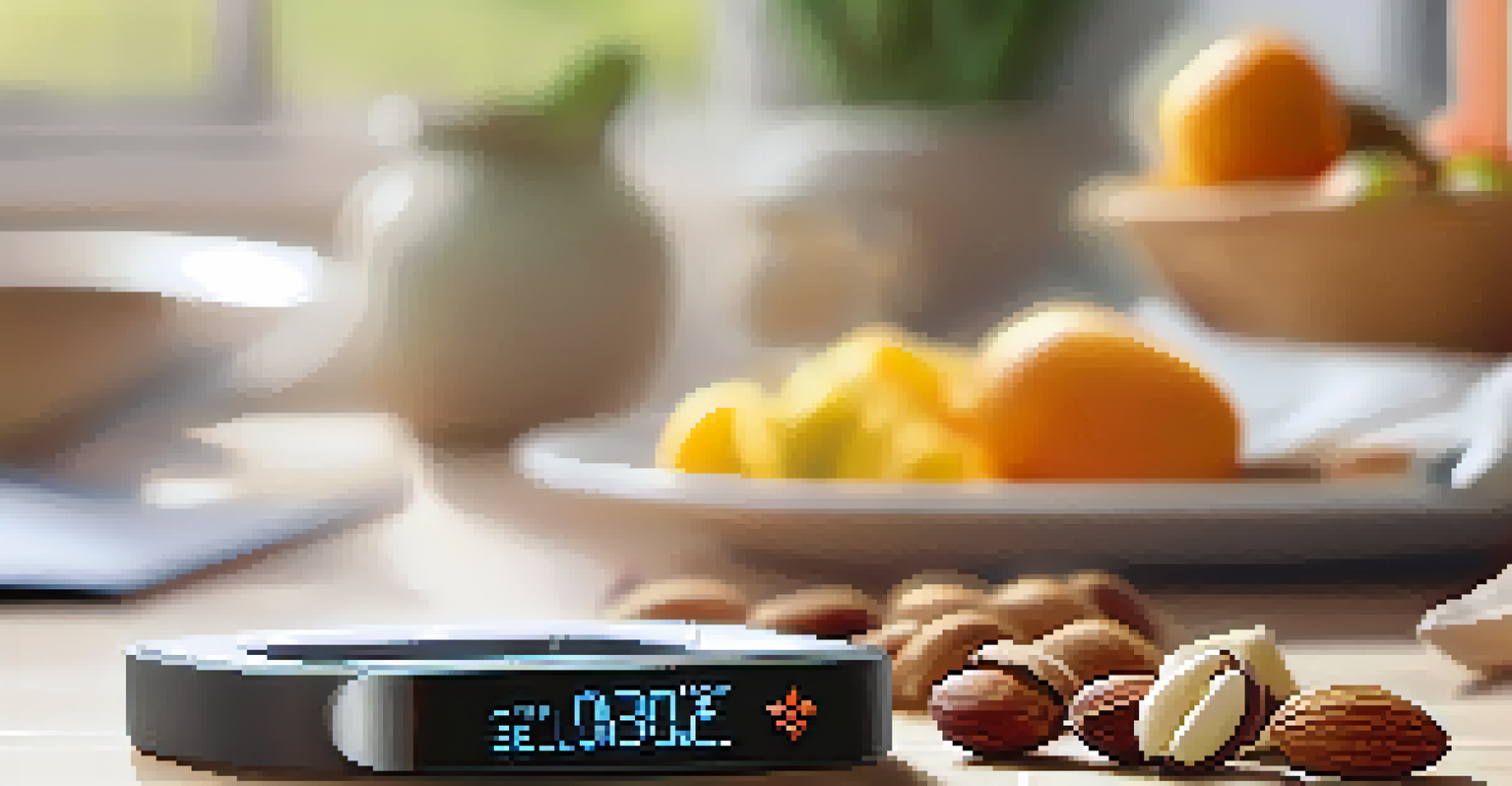Self-Experimentation: A Key to Personalized Health

Understanding Self-Experimentation in Health
Self-experimentation is the practice of individuals testing health-related hypotheses on themselves. This method contrasts with traditional medical research, where studies often involve large populations. By taking a hands-on approach, people can discover what works best for their unique bodies and lifestyles.
The best way to predict the future is to create it.
For example, someone might decide to track how different diets affect their energy levels. They could try a week of low-carb eating, followed by a week of plant-based meals, all while recording their mood and productivity. This personal insight can reveal tailored strategies for better health.
Ultimately, self-experimentation enables individuals to become active participants in their health journeys, fostering a deeper connection with their bodies and well-being.
The Science Behind Self-Experimentation
While self-experimentation may sound anecdotal, there's scientific merit behind it. The concept is rooted in the idea of N-of-1 trials, where one person acts as their own control group. This approach allows for more personalized insights, particularly in areas like diet, exercise, and mental health.

Consider a person who notices they feel better after a morning run compared to sleeping in. By experimenting with their routine, they can track their mood and energy levels more effectively. This data-driven approach can lead to more informed decisions about their daily habits.
Self-Experimentation Empowering Health
Individuals can take charge of their health by testing personal health strategies through self-experimentation.
By applying scientific principles to personal experiences, self-experimentation bridges the gap between empirical research and individual health, empowering people to make choices that resonate with their own experiences.
Benefits of Self-Experimentation for Health
One of the primary benefits of self-experimentation is improved self-awareness. By regularly monitoring how various factors influence their well-being, individuals gain valuable insights into their health. This awareness can lead to better lifestyle choices and habits tailored to their needs.
What gets measured gets managed.
For instance, someone with sleep issues might experiment with different bedtime routines, such as reducing screen time or adjusting room temperature. Over time, they can identify specific changes that contribute to more restful nights.
Ultimately, the knowledge gained through self-experimentation empowers individuals to take charge of their health, fostering a sense of ownership and responsibility for their well-being.
Challenges and Risks of Self-Experimentation
Despite its advantages, self-experimentation comes with challenges and potential risks. One common issue is the difficulty in isolating variables; many factors can influence health, making it hard to pinpoint what truly works. This complexity can lead to misleading conclusions or ineffective changes.
Moreover, individuals may lack the expertise to interpret their findings accurately. For example, someone might mistakenly attribute improved mood to a new supplement rather than recognizing the role of increased physical activity.
Science Supports Personal Insights
The concept of N-of-1 trials provides a scientific foundation for self-experimentation, allowing for personalized health insights.
To mitigate these risks, it's essential to approach self-experimentation with a critical mindset and, when possible, consult with health professionals to ensure safe and informed practices.
Tools for Self-Experimentation
Fortunately, there are numerous tools available to aid self-experimentation. From health tracking apps to wearable devices, technology has made it easier to collect and analyze personal data. These tools help individuals monitor various aspects of their health, such as sleep patterns, nutrition, and exercise.
For example, a fitness tracker can provide insights into physical activity levels, while a food diary app can help users log their meals and notice correlations with their energy levels or mood. By leveraging these resources, self-experimenters can refine their approaches more effectively.
In this digital age, the ability to track personal health data empowers individuals to make informed decisions, enhancing their self-experimentation journey.
Case Studies: Success in Self-Experimentation
Real-life examples can illustrate the power of self-experimentation in health. Take the case of a woman who struggled with anxiety; she decided to experiment with mindfulness techniques. By tracking her feelings over several weeks, she discovered that daily meditation significantly reduced her anxiety levels.
Another inspiring story involves a man who sought to improve his athletic performance. By testing different training schedules, he found that alternating high-intensity workouts with rest days yielded the best results. These personalized adjustments led to peak performance during competitions.
Tools Enhance Self-Experimentation
Technology offers various tools that enable individuals to track and analyze their health data for more informed decisions.
These case studies exemplify how self-experimentation can lead to meaningful health improvements, encouraging others to embark on their own journeys of discovery.
Future of Self-Experimentation in Personalized Health
Looking ahead, the future of self-experimentation appears promising. With advancements in technology and data analytics, individuals will have even more tools at their disposal to personalize their health journeys. Innovations like artificial intelligence could help analyze personal data more effectively, offering tailored recommendations.
Moreover, as the health and wellness industry continues to evolve, there will likely be increased acceptance of self-experimentation as a legitimate method for understanding health. This shift could lead to more resources and support for individuals exploring their unique health paths.

Ultimately, the future of personalized health lies in empowering individuals to take control of their well-being through self-experimentation, fostering a culture of curiosity and discovery.